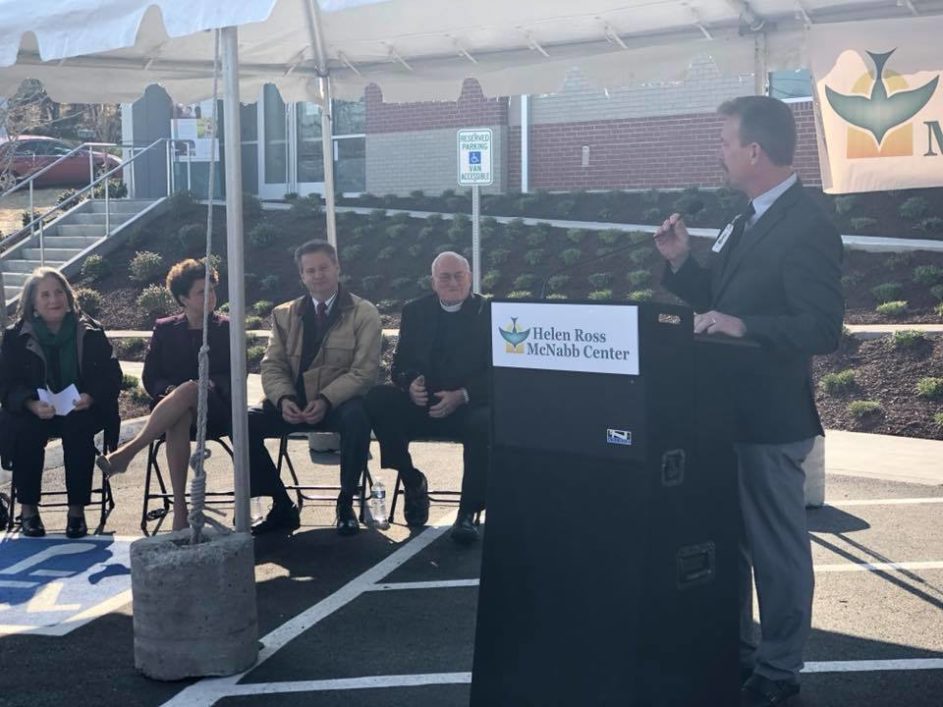State funds for Knoxville’s Safety Center were cut 75 percent this year at a time when the state budget has a surplus of over $500 million. At the end of Gov. Bill Lee’s first budget next year, the rainy-day fund will contain $1.1 billion.
It’s called the Behavioral Health Urgent Care Center now, but it remains a place to get treatment that removes the mentally ill and substance abusers from the jail. It’s run by Helen Ross McNabb, a nonprofit mental-health clinic. Last year’s start-up $3 million budget was cut to $1.4 million to operate the fiscal year that begins July 1.
Knoxville and Knox County governments have stepped up to provide much-needed funds. The county commission approved $840,000 (up from $600,000 last year) while the city council approved $560,000 (up from $400,000). And McNabb reduced the scope of treatment, offering a one-day stay rather than three.
Council members and county commissioners are not too happy, though, and raised objections before finally approving the money. Commissioner Randy Smith asked for reports. “My understanding was that we would see 1,500 to 1,800 people, but we wound up seeing about 450.”
Jerry Vagnier, the CEO at Helen Ross McNabb, said that every person brought by law enforcement was seen and reports were made quarterly to the heads of law enforcement.

Randy Nichols
Former District Attorney Randy Nichols, who has worked with former Sheriff Jimmy “J.J.” Jones and current Sheriff Tom Spangler to get the treatment center, says he had hoped state funds would cover the first two years of the program, but “other cities started similar programs and the money got spread around.”
Former County Mayor Tim Burchett, Jones and Nichols pitched the idea to the state as a three-year pilot project. Gov. Bill Haslam was receptive, but other cities heard about it and suddenly seven locations, from Morristown to Memphis, were seeking funds. Lee’s administration came in and the funds were split to provide start-up grants for facilities in all seven locations. Instead of three years of funding, Knox County got enough to operate for 15 months.
Nichols says Lee just came into office in January and perhaps as time goes on, he will focus more on mental-health issues. When a patient gets three days at the Behavioral Health Center to get sober and stable there is then no place for residential follow-up treatment. Three days is not long enough to change behavior. “We don’t have a safe place to change behavior like a mental-health facility.
“We need something better than a jail cell or under a bridge to treat people.”
Nichols thinks the state ought to consider regional mental-health centers for long-term treatment. He also says the former St. Mary’s hospital property, being transferred to the city of Knoxville, would be an ideal place for treatment and for drug rehab with some state leadership.
Last year the Behavioral Clinic treated about 500 patients, and Nichols says an astounding 80 percent of them made their first appointment with a counselor after leaving.
Vagnier said the coalition of seven locations has had good success, though each local entity has tried different approaches. Memphis uses first responders to intervene in drug cases. Nashville has a 23-hour turnaround model. Morristown focuses on women, getting them off drugs and employed.
With the “wide political footprint” of the programs, Vagnier is hopeful that the state will step up with more funding going forward. He points out that Knox County Mayor Glenn Jacobs and Knoxville Mayor Madeline Rogero have been supportive. “Mayor Jacobs is behind it and he isn’t going away. There will be a new mayor in the city, but we will just need to educate them.
“Gov. Lee has shown a real interest in criminal-justice issues.”
Vagnier says it pays to have local government behind the program. What hangs over the issue is jail overcrowding. It has been estimated that a new pod addition to the county jail could run over $30 million.
“We can run this program for 35 years on that kind of money.”

